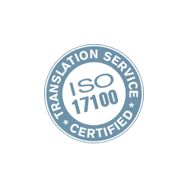The Best Way To Learn A Language: Top Tips and Easy Steps
Never attempted to learn a foreign language before? If you plan to, you probably feel very overwhelmed just now, and you’ve probably stumbled across this article in your bid to work out where to even begin.
Most people don’t naturally absorb information by simply reading a textbook, but don’t disregard your abilities – even if you aren’t a ‘natural’ polyglot.
The key is organisation, time and a little creativity in your approach. This language infographic will help you to come up with your own language study plan to learn a language. It’s not going to be easy, but it will be a lot easier if you have a plan to refer to!
This guide has been developed by a language learner and draws on experience, research, and tried and tested techniques. The hardest part of learning a language is usually finding time rather than memorising chunks of information. But people learn new languages all the time, so you can do it too!
How to Learn A Language – Simple Infographic!

1. Set a goal
When you first start learning a language, you’re typically driven by the initial excitement. But when this wears off, sticking to your learning can be a challenge. One great way to stay motivated is to set goals and track your progress.
If you’re already intermediate and want all the benefits of bilingualism, you may decide that you want to be conversational in 6 months.
Or you could set smaller specific goals like learning the vocabulary of a particular topic. Working towards targets will not only help keep you on track, but if you learn with a partner or friend, you can hold each other accountable.
2. Live the language
If you’ve been learning for a while and really want to get stuck into it, you’ve probably wondered what the best way is to immerse yourself in a language. Fortunately for those of us that can’t just nip abroad for a few months, there’s plenty of great alternatives.
Watching foreign language films is a great way both to learn and improve pronunciation. Though you’re not speaking the words out loud, consistently hearing the language gets you familiar with how it should sound, and in turn helps improve how you say it yourself. You can even watch a movie you know in another language.
3. Vary your study plan
Motivate yourself by keeping your language learning fun. There’s no need to sit in front of a grammar book all day learning the gender of nouns if it’s just going to put you off. You can read different foreign language books, try quizzes, watch movies, or even listen to music.
There are also some great apps to help keep you learning on the go. Just use them when you’ve got a minute to spare to keep your vocab refreshed, and prevent yourself from forgetting language that you’ve learned. You can check out our roundup of the best language learning apps to get started.
4. Find fellow learners
It’s normal to experience some foreign language anxiety when you’re first testing out your skills. But there’s never really a ‘right time’ to start speaking. In fact, the sooner you try the better!
You could find classes, language exchanges, or even simply an online platform or society for your target language. Language learning apps like HelloTalk are a great place to start. HelloTalk is based on the principle that the best way to learn a language is to actually speak it. The app connects you with native speakers to chat with for free, and you can chat individually or as a group.
5. Reward your success
Keeping note of your progress can make a huge difference when learning a language. Particularly if you’ve taken the trickier road of learning a language as an adult, it can be easy to forget how far you’ve come.
Children learn language generally much more quickly, but for adults it’s not quite as simple as learning a language in your sleep. As an adult you may need some extra incentives to keep going.
Tracking your milestones and what you’ve learnt is one great method. You could use quiz results or flash cards, and reward yourself with a fun language related gift. You could buy a new book or film in your target language, or even book a trip to a country that speaks it.
Conclusion
If you plan your learning well, there’s less need to worry about the easiest language to learn.
Learning a language to get ahead in your career? Why not check out the best languages to learn for business.
Or if you’re looking for some more professional help, Global Language Services can help you out. We have a variety of translators and interpreters that can work to suit your needs, and we’ve even covered how to choose the best interpreter and how to choose a translator.
If you’d like to find out more, just get in touch with us!





